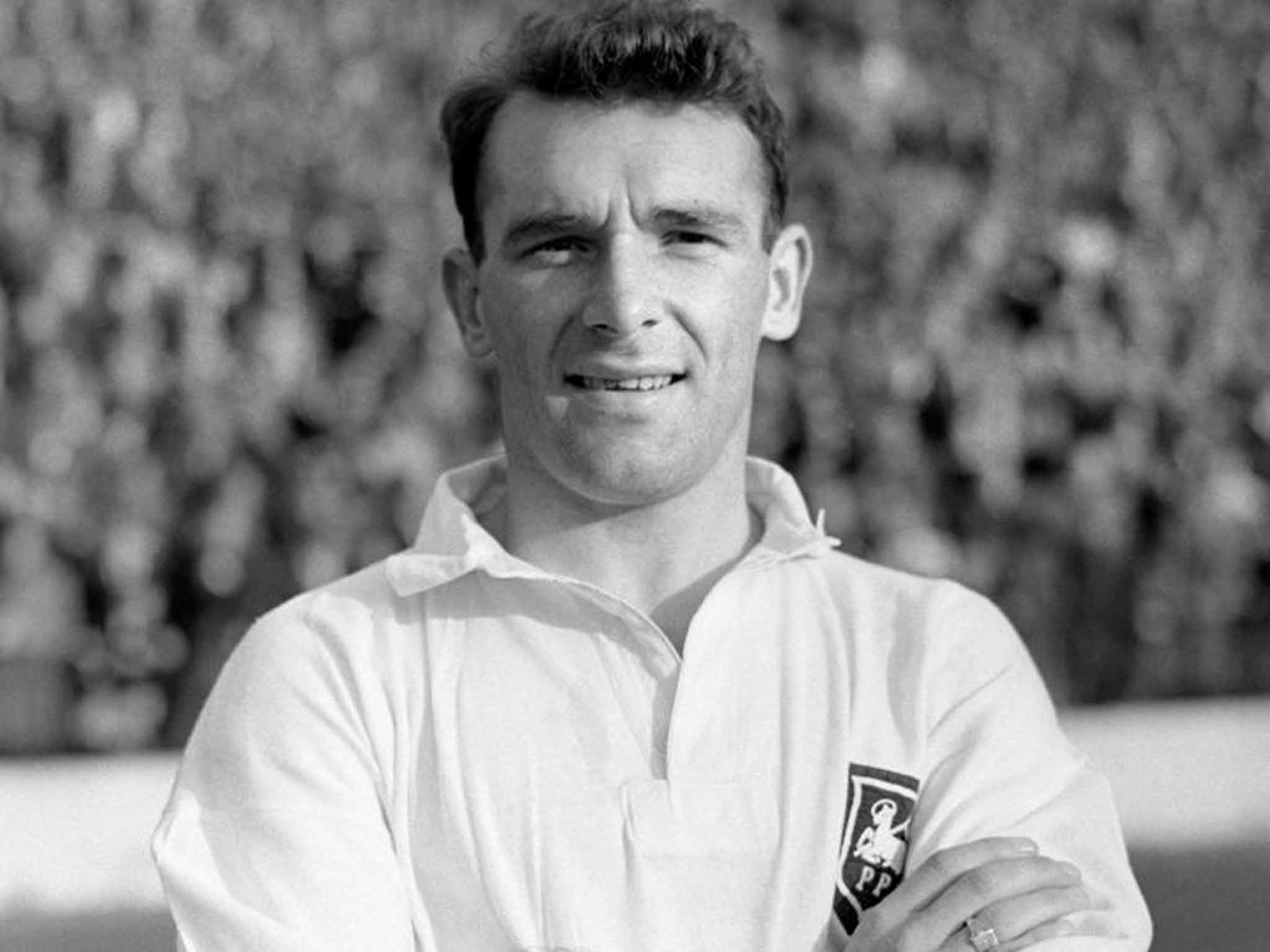Tommy Thompson: Striker whose partnership with Tom Finney made Preston a potent side in the 1950s
His awareness of the space around him and knack of passing perceptively at speed marked him out as one of the finest goal-poaching inside-forwards of his generation

Tommy Thompson was an engagingly modest fellow who would never have made the point himself, but there is a persuasive theory that there was no more effective foil for the great Tom Finney than the diminutive Wearsider with whom he raided in tandem for Preston North End, then one of the most potent football powers in the land, during the second half of the 1950s.
Between them they racked up more than 200 goals in the space of five seasons, during which the Deepdale side finished second in one title race and third in another, and Thompson might have considered himself unfortunate to have been awarded only two England caps.
For all his lack of inches, “Topper” was a powerfully built predator, able to withstand ferocious physical challenges from hulking markers. He was endowed with explosive pace over short distances and exceptional stamina, yet he was somehow unobtrusive, an intelligent and unselfish technician whose awareness of the ever-changing space around him and knack of passing perceptively at speed marked him out as one of the finest goal-poaching inside-forwards of his generation.
Thompson entered the professional game in humble circumstances when Newcastle United paid Lumley YMCA £25 for his services as a 17-year-old in August 1946, then made his senior debut in a 1-1 draw at Coventry in February 1948. He made only minimal contribution to the Magpies' promotion to the top flight at season's end and, faced by fierce competition for a first-team berth from such as the Chilean striker George Robledo and England international Ernie Taylor, he accepted a £15,000 transfer to Aston Villa in August 1950.
Though disappointed to leave his native North-east, Thompson settled quickly in the Midlands, especially after being joined by his former Newcastle manager George Martin, and over five seasons in which Villa yo-yoed up and down the First Division table, twice finishing sixth but more often becalmed in the middle, he scored 76 times in 165 League and FA Cup appearances. There was an explosive display, too, for the Football League, when he scored four times in the 9-1 evisceration of the League of Ireland at Goodison Park in October 1951 His first full cap came in a 1-1 draw with Wales at Ninian Park 10 days later.
Though there was no sustained international breakthrough, Thompson was top scorer in his last two seasons at Villa Park, with 21 and 20 goals respectively, but it was not until his £27,000 move to Preston North End in the summer of 1955 that his career truly began to fly, starting with a goal after only two minutes of his debut, against Everton at Deepdale that August, and gathering pace with five in his first six games.
Hugely motivated by the prospect of playing alongside Finney, he embarked on a prolific sequence which saw him top the Lilywhites' goal charts in four successive seasons, notably in 1956-57 when his 26 goals helped to secure third place, and in 1957-58, when they were runners-up to Wolverhampton Wanderers and his tally of 34 included goals in 11 successive matches. That remains a Preston record for the top division, and was concluded by the team's 100th of the campaign on the final day in a 3-0 home victory over Arsenal.
Thompson had no trophies to show for his rampant form, though there was a second cap when he lined up between the two most illustrious names in domestic football, his versatile clubmate Finney at centre-forward and Stanley Matthews on the right wing, in England's 2-1 win over Scotland at Wembley in April 1957.
By decade's end, however, Thompson was increasingly hampered by knee problems, and a year after Finney retired in 1960, an ageing team that had not been sufficiently replenished with younger talents nosedived to relegation. Now in his thirties, Thompson was told he wasn't needed for what proved to be a failed attempt to bounce back to the top flight at the first attempt, and in June 1961 he was sold to Second Division rivals Stoke City for £2,500.
At the Victoria Ground he was an apt addition to the team of veteran maestro attackers being assembled by the imaginative manager Tony Waddington, men such as Jackie Mudie, Dennis Viollet and the incomparable Matthews himself, and that season he shouldered the bulk of the scoring burden for the mid-table Potters, with 16 goals.
Sadly for the still-eager marksman, he was not fit enough to make a telling impact in 1962-63 when Stoke lifted the divisional title, and in March he moved on to Barrow of the Fourth Division, with whom he spent a year before entering injury-induced retirement. Later Thompson went back to Deepdale for a brief coaching stint before returning to his original trade as a joiner, though it is for his inspirational work alongside the “Preston Plumber” that he will remembered most vividly.
Thomas Thompson, footballer: born Fencehouses, County Durham 10 November 1928; died 15 September 2015.
Join our commenting forum
Join thought-provoking conversations, follow other Independent readers and see their replies
Comments
Bookmark popover
Removed from bookmarks